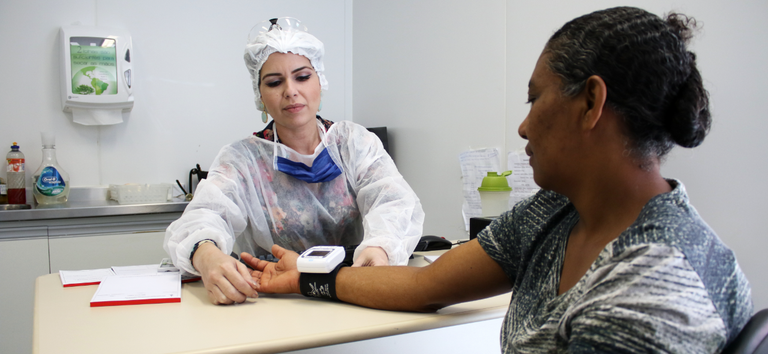Multidisciplinary care in primary health care, the main gateway to the SUS, is again a priority for the Ministry of Health. With investments of more than R$ 870 million in 2023, the portfolio resumes financing teams made up of health professionals from various fields, such as nutritionists, physiotherapists, pediatricians, psychologists, gynecologists and pharmacists. Launched this Monday (22), eMulti enhances multidisciplinary care by increasing the amount transferred to states and municipalities to fund new teams and specialties, while also engaging cardiologists, dermatologists, endocrinologists, and infection and leprosy specialists. Thus, the federal government has expanded access to health services, disease prevention and diagnosis to more than 85 million Brazilians.
This service is guaranteed by the Health Support Center (Nesf), which was established in 2008, but was dismantled by the previous administration. The lack of funding from the previous government so that states and municipalities could keep the teams organized and functioning led to a lack of assistance, especially in the most vulnerable regions of Brazil. With the rebuilding and reformulation of this strategy, now called eMulti, it is expected that 4,000 multidisciplinary teams will once again organize themselves and provide this service throughout the country.
“eMulti resumes, innovates and strengthens multidisciplinary care in primary care, building on the experience of Nasf, which was a structural part of SUS. This recovery is a health priority in President Lula’s government, as well as a requirement of municipal and state managers. We are rebuilding comprehensive assistance and care and restoring access to health for Brazilians,” reinforced the Executive Secretary of the Ministry of Health, Swedenborger Barbosa.
The resumption of multidisciplinary teams is essential to ensure comprehensive care for the population, and to increase the resolution of health problems in primary care, as Brazilians will have access to specialized care in basic health units.
“We are creating care networks, regional micro-networks, optimizing structures, simplifying organization and access in SUS. This strategy is being reproduced in small, medium and large municipalities, where the base is the minimum territory for a group of family health teams. In the case of one family health team or More, we may have a multidisciplinary team attached. The design is adaptable to different dimensions and will transform the territory of the municipality into a space for universal healthcare for the people, “emphasized the Minister of Primary Health Care, Nicio Fernandez.
According to the decree published on Monday (22), which sets the guidelines for financing and implementing teams, eMulti will be classified into 3 modes according to workload, connectivity and professional composition. Monthly transfers from the Ministry of Health to fund these teams range between R$12,000 and R$36,000. The cost may also vary according to the performance indicators of each site.
Many municipalities, even as this strategy was dismantled in the last government, have kept multidisciplinary teams running. Now, as investment resumes, these teams can be realigned.
Check out which professionals can be included in the teams:
- Art educator
- social worker
- Clinical pharmacist
- Physiotherapist
- speech therapist
- Acupuncture doctor
- Cardiologist
- dermatologist
- Endocrinologist
- Geriatrician
- Gynecologist/obstetrician
- Hansen Doctor
- homeopathic doctor
- infection doctor
- Pediatrician
- psychologist
- veterinarian
- nutrition specialist
- Professional Ed. Physics in health
- psychologist
- sanitarian
- Occupational therapist
Ministry of Health

“Writer. Analyst. Avid travel maven. Devoted twitter guru. Unapologetic pop culture expert. General zombie enthusiast.”

